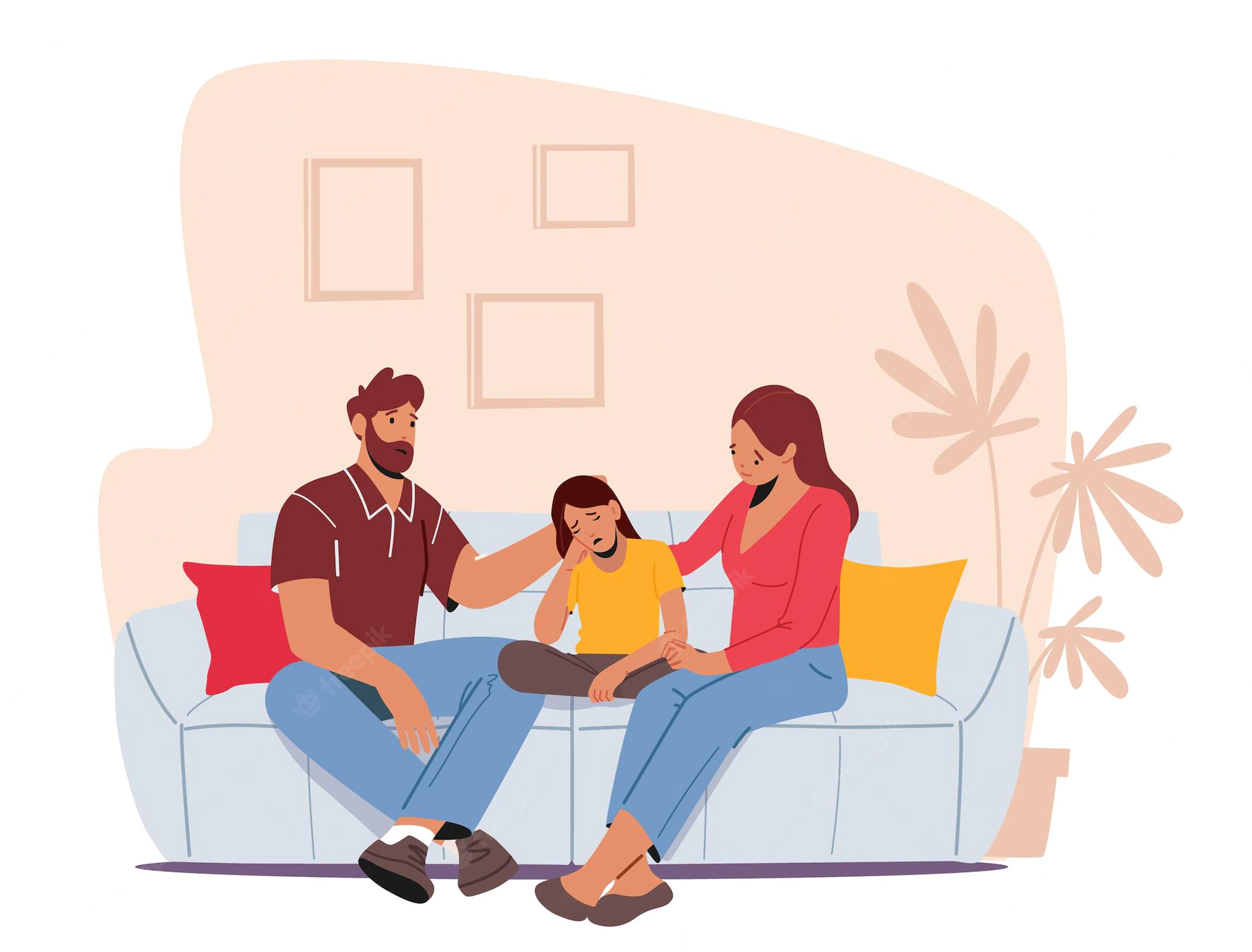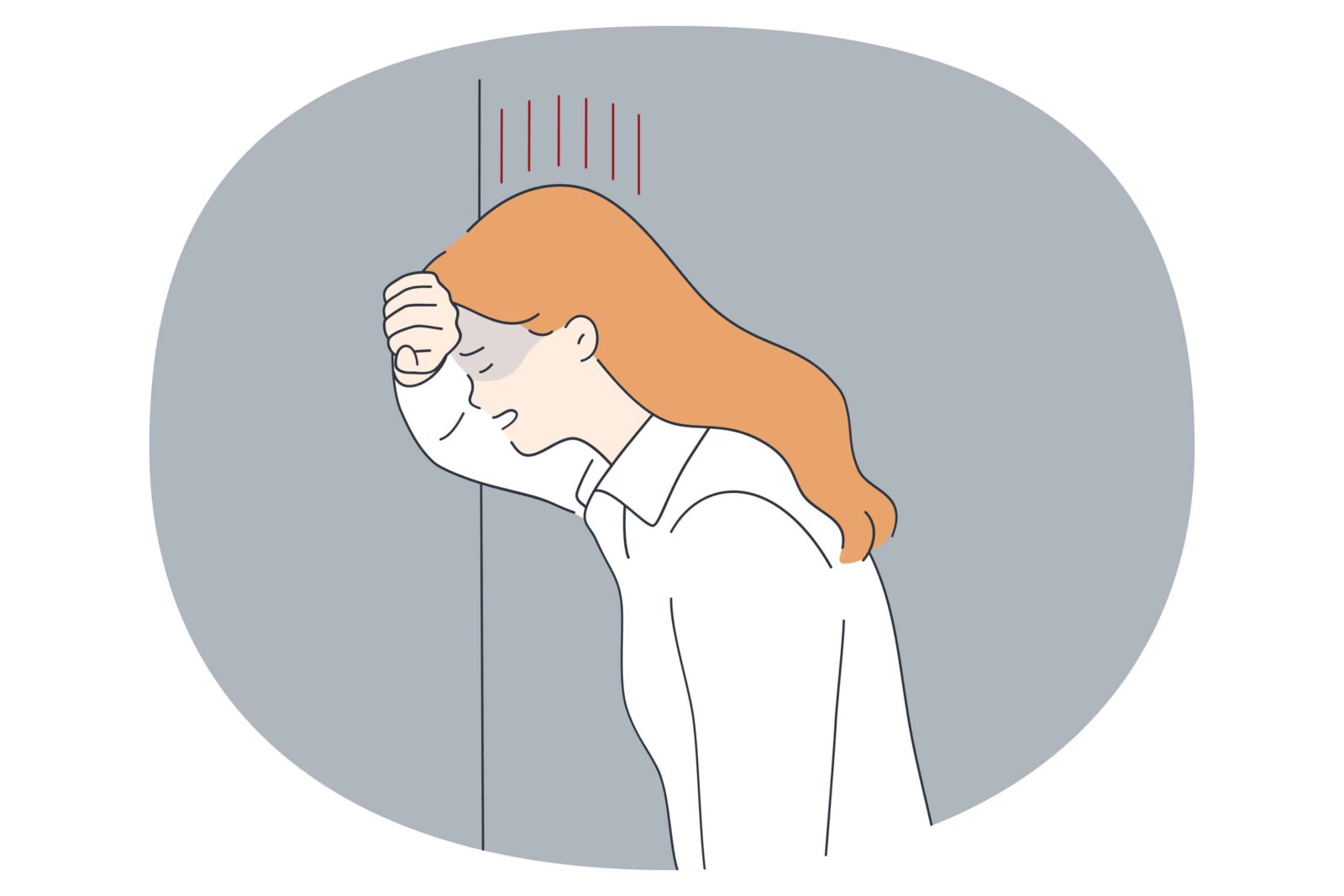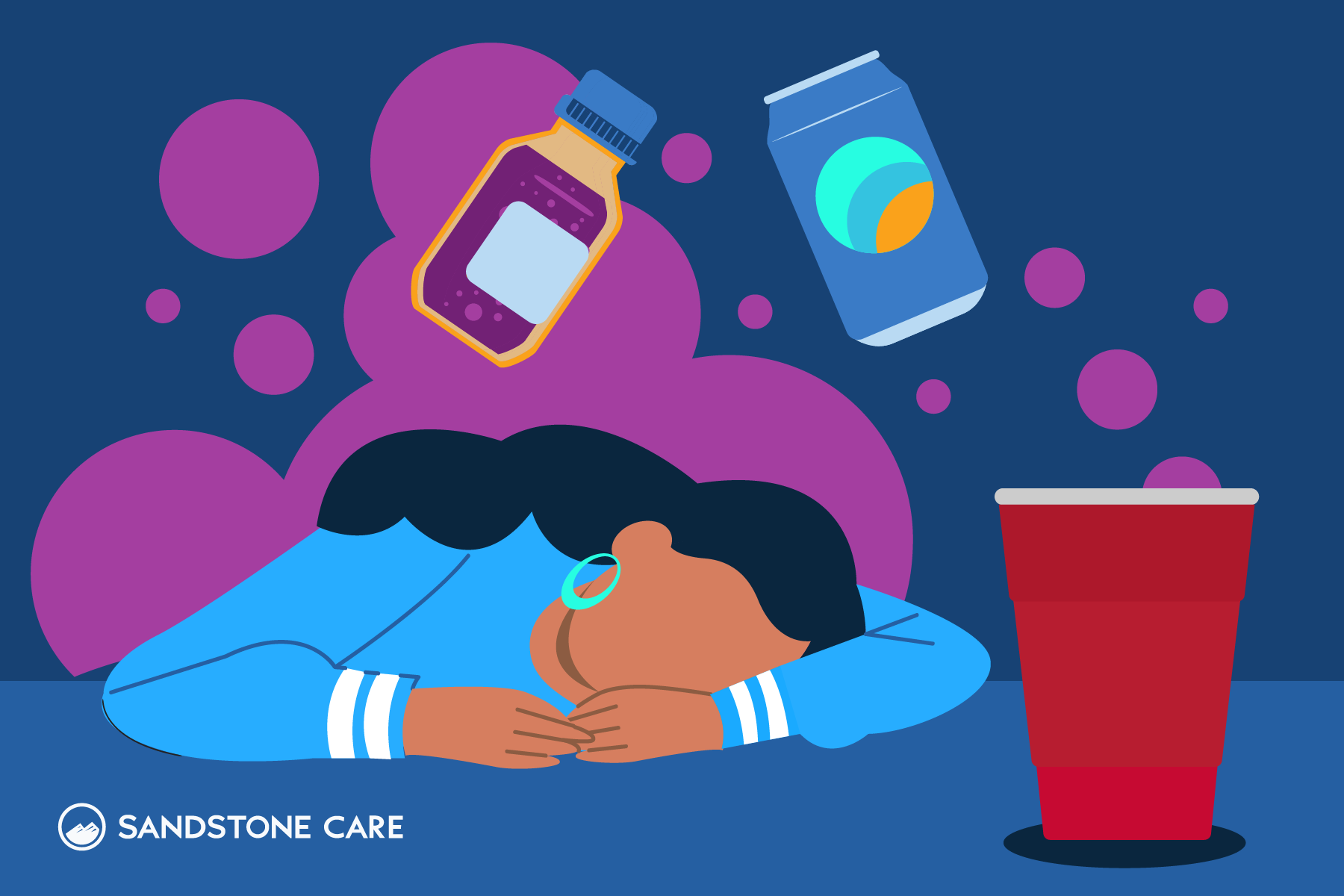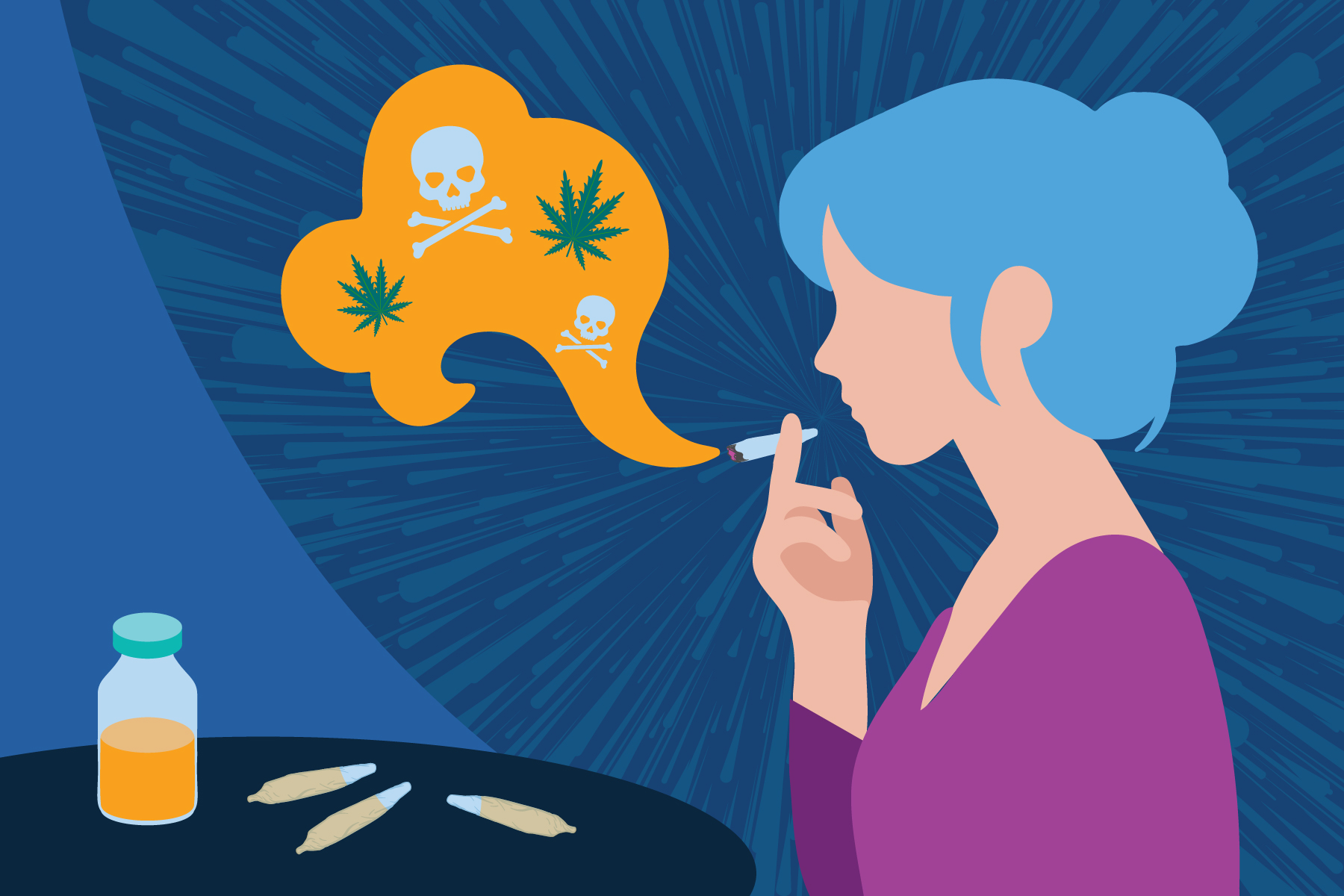Table of Contents
- How Do I Ask My Parents For Help With Addiction Or Substance Use?
- How Do You Tell Your Parents You Think You Have A Mental Illness?
- How Do You Ask Your Parents For Help With Mental Health?
- What Are The Benefits Of Getting Help From Family?
- What If My Parents Say No?
- What Should I Do If I Have A Family Member Struggling With A Substance Use Or Mental Health Issue?
- How Do You Ask Your Friends For Help With Mental Health?
- How Do You Ask Your Friends For Help With Substance Use?
How Do I Ask My Parents For Help With Addiction Or Substance Use?
Asking for help with addiction starts with admitting you have a problem.
It can be frightening to look at your substance use patterns and determine if you have a problem or not. However, admitting that you may be struggling with addiction is the first step in getting help.
From there, asking your parents or caregivers for help when you are struggling with substance use disorder starts with an open and honest conversation.
As a teen or young adult, telling your family members that you are struggling with addiction to drugs or alcohol can be frightening. You may feel like you are the only person struggling.
However, according to the National Institute on Drug Abuse (NIDA), 10.2% of teens in 8th grade, 18.7% of teens in 10th grade, 32% of teens in 12th grade reported alcohol or drug abuse.
You may fear that your family will react poorly, shame you, or be unwilling to help you find treatment. However, having a conversation about your alcohol and drug use can bring a great sense of relief for both you and your loved ones.
Once you talk to your parents about getting help for an alcohol or drug addiction, you have the opportunity to get professional help and heal.
The following tips can help you start the conversation about addiction:
Find the right time: Timing is important when it comes to a discussion about your alcohol or drug abuse. Your parents or caregivers will most likely want time to process what you have told them. It may be best to avoid having the conversation right before they are heading out or while they are preoccupied.
Be honest: People struggling with addiction often go out of their way to hide their alcohol or drug use from their loved ones. However, opening up a conversation about your addiction and asking for help means you need to be honest. When your parents have a better understanding of what you are going through, they can do their best to provide you with the help you need.
Provide education and resources: At first, your parents may feel lost when you tell them that you are struggling with addiction. It can be helpful to provide them with resources about addiction, such as those offered by the Substance Abuse and Mental Health Services Administration (SAMHSA).
While you may be plagued by fear, the sooner you tell your family members that you are struggling with substance use, the sooner you can get the help and support you need.
It’s important to remember there is no one way to ask for help. As long as you get the help you need, however, you decide to have a conversation with your parents or caregivers will be the best way to discuss the issues at hand.
Having a conversation about addiction and needing substance abuse treatment isn’t the easiest conversation to have. However, a lot of times, parents already suspect something is going on. Your loved ones will appreciate your honestly surrounding your struggles.
How Do You Tell Your Parents You Think You Have A Mental Illness?
Providing your parents or caregivers with information about mental health conditions can help you approach the conversation of your personal mental health problems.
According to the Centers for Disease Control and Prevention (CDC), millions of children struggle with mental illness. The most prevalent mental health conditions in young people include attention-deficit/hyperactivity disorder (ADHD), anxiety, and behavior disorders.
Knowing that you are not alone in your mental health struggles is the first step in accepting that you need help. From there, you can talk to your loved ones about what you think you may be struggling with.
Some tips for telling your parents you have a mental health condition include:
Plan ahead: It can help to write down what you want to say and focus on the impact of how you’ve been feeling.
Prepare for their reaction: Your parents may not react the way you want them to. They may tell you these feelings are normal for teenagers. Prepare to stand up for yourself with statements such as “I can’t manage this on my own” and give them time to process.
Pick a time and place: Have the conversation in a space you and your loved ones feel relaxed, such as at home. It’s also best to have a conversation when your parents are feeling relaxed and in a space to have a discussion.
Let them know how to help: Your parents may be unsure how to help. Think about the ways they can support you — such as booking you an appointment with a mental health professional — and let them know this is how they can help.
Get extra support: Support outside of the home, such as a school counselor, can help you practice the conversation and give you more tips on what to say.
Once you’ve had the conversation with your parents about your mental health problems, it may be time to have the conversation about asking for help. Your parents will be the people who can help you find mental health treatment.
How Do You Ask Your Parents For Help With Mental Health?
Asking for help starts with knowing there is nothing wrong with seeking mental health treatment.
While the idea of approaching your loved ones about your struggles can seem frightening, your parents are most likely going to be more sympathetic and less judgmental than you think. There is nothing wrong with needing help.
Just like you would ask your parents for help if you were struggling in a specific subject in school, it’s crucial to ask for help finding treatment services if you are struggling with your mental health.
Explain to your parents how you are feeling and how your feelings affect your everyday life. For example, you may feel so anxious that you feel sick and can’t get out of bed to go to school.
Once you explain how you feel, it’s best to flat-out tell your parents that you need help. Instead of explaining why you have these feelings, you can say something along the lines of “I want to see someone who can help.”
Don’t wait to ask for help.
The sooner you can approach your loved ones about finding mental health treatment, the sooner you will feel a reprieve from your symptoms. Asking for help as soon as possible will help improve your emotional health and well-being.
What Are The Benefits Of Getting Help From Family?
Families are often where people pull their strength from.
When your loved ones can help you find a treatment center or mental health professional who can help you, they become a part of your journey. When your parents support you, your emotional health can vastly improve.
There are many benefits of getting help from family, including:
Family education: Many parents have a hard time fully understanding their children’s struggles. However, treatment facilities can help educate you and your family about your diagnosis and the best ways to help.
Mending relationships: Therapy can also help you mend broken or strained relationships with your parents. With stronger relationships, you are more likely to succeed.
Encouragement: Family support during addiction or mental health treatment can offer reassurance and provide you with the encouragement needed to help you stay on track in your wellness journey.
According to a study published by BMJ Open, “family” involvement in treatment can reduce the harms and can also improve treatment entry, treatment completion, and treatment outcomes for the individual coping with an addiction.”
When your family members help you heal, you can all work towards overcoming the issues experienced. Together, you can become stronger.
What If My Parents Say No?
If your parents say no to helping you find a treatment facility for your struggles, it’s important to try again while also finding support elsewhere.
If you feel like your parents have brushed you off, try approaching the subject again. This time, ask them when the best time to talk is and let them know what you have to say is important.
If your parents still say no, it may be best to speak to another trusted adult. Other family members or even school faculty, such as teachers or school counselors, can help you talk to your parents and provide you with the support your need.
Support groups, either online, through social media, or in the community, can also help support you. These groups can help you on your substance abuse or mental health journey and provide you with tips on helping yourself.
SAMHSSAMHSA’Sonal Helpline, (800) 662-HELP, via text message at 43578, or TTY at (800) 487-4889 is a confidential, free information service that can provide referrals to treatment facilities, support groups, and community-based organizations.
What Should I Do If I Have A Family Member Struggling With A Substance Use Or Mental Health Issue?
If your family member is also struggling with mental health issues or substance use, it may be best to work towards speaking with your family member or another trusted adult about the problem.
Asking for help can be challenging if you have a parent or caregiver who also needs help. You may fear that your family member will resent you or lash out if you bring up what they are struggling with.
Working past that fear towards a space where you feel comfortable confronting the issue should be the goal. When you can confront what your family member is going through, everyone can find healing.
Some ways you can help yourself help your family member include:
Find an adult to confide in: Find a trusted adult, whether they are another family member or not. This person can help validate what you are going through and may even help you prepare a conversation or confront a struggling family member.
Keep a journal: Writing down your feelings can help you move past the fear of confronting the issues your family member is experiencing. A journal can also help you prepare for a conversation.
Stay close to your friends: It can be challenging to be honest with your friends about what is going on with your family, but they may be your best support. Your friends can be an ear to listen and a shoulder to cry on.
When it is time to have the conversation about seeking treatment, the following steps can help you:
Write down your feelings first: Before you approach your family member, clarify what you are feeling through writing. This way, you know what you want to say. If the conversation strays, you can turn back to your writing.
Get help from a professional: Sometimes, you may need professional help when talking to your loved one about their substance use or mental health. A trusted adult can help you find an interventionist if needed.
Ask trusted adults for help: Other family members can help you approach the conversation about a loved one seeking treatment. They can also help with other health care needs, such as getting medications if needed.
State your expectations clearly: Make sure you know what your expectations are for your loved one seeking help. This may be going to a treatment facility, finding a support group, or seeking a psychiatrist or therapist.
While there is no single solution for dealing with a family member who is struggling with substance abuse or mental health, family support can help them get on the path they need for healing.
When a family member is struggling, it can affect everyone else around them. Having a family member battle with addiction or mental health while you battle the same issues can feel overwhelming.
Family therapy or counseling can help the entire family find healing. It can help resolve any problems that lie within the family and help you find solutions that work for everybody.
The most important thing to remember is that you are also struggling. While your family member may need your help, you should be your first priority.
How Do You Ask Your Friends For Help With Mental Health?
Asking your friends for help with your mental health starts with a conversation.
If you need extra support in your mental wellness journey, friends are a great resource. However, just like you have to have a conversation with your family members, you have to open up a conversation with your friends.
Talking to your friends about what you are struggling with might be easier than talking to your loved ones, but it’s important to remember your friends may still feel shocked or be unsure of what to say.
You can start the conversation about your mental health with friends by selecting a time and place. You may choose to do it in a quiet, indoor place. You may even decide it’s a conversation you want to have over the phone.
From there, you can approach the conversation the same way you would with family members. Be open and honest with your friends and let them know how they can support you. However, support from friends may look different than support from family.
Support from friends may look like:
Having someone to just listen when you need
Having someone who can acknowledge you are struggling without judgment
Having someone who can approach you with compassion no matter what
How Do You Ask Your Friends For Help With Substance Use?
Asking for help with substance use means letting your friends know you are struggling.
Chances are, just like your family, your close friends may already be suspicious that something is going on with you. Being open and honest about your struggles can start the conversation of how they can help you.
While your friends may not be able to help you find treatment, having their support can help encourage your wellness journey. Just like asking your family for help with addiction, asking your friends for help starts with finding the right time and place, education, and honesty.
Approaching your friends about the topic of substance abuse is best done in a quiet and comfortable environment. This way, they have a safe environment to process any emotions that may come up with your admission.
However, your friends may not understand what it means to struggle with addiction. Letting them know what you are struggling with — such as alcohol, opioids, or cocaine — can help start the education and honesty process.
You can provide your friend with resources to learn more, such as those offered by SAMHSA.
Being honest with your friends about what is going on can help you build a support system. They can provide you with encouragement, comfort, and guidance while you attend a treatment program and into your recovery.
Family members can help you find addiction or mental health treatment. Sandstone Care is here to support teens and young adults with substance use and mental health disorders. Call (888) 850-1890.











